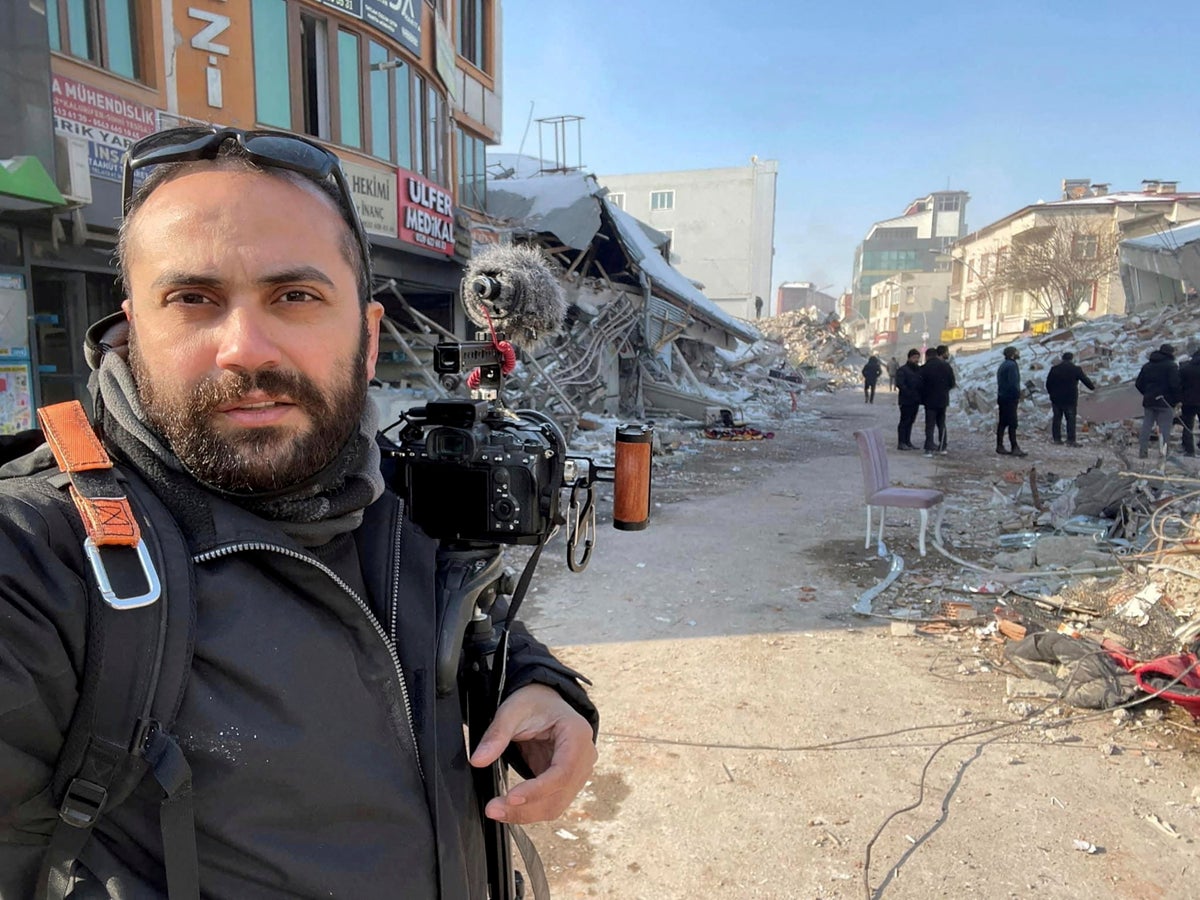
Israel has been accused of killing a journalist and injuring six others in a direct strike in southern Lebanon, in what Amnesty and Human Right Watch have said should be investigated as a possible war crime.
On 13 October, Reuters photographer Issam Abdallah was killed while stationed roughly one kilometre from the northern Israeli border with Lebanon. He was filming skirmishes between the Israeli military and Hezbollah, who are allied with Hamas that Israel are fighting a war against in Gaza.
A Reuters investigation published on Thursday said an Israeli tank crew killed Mr Abdallah and wounded the six other journalists by firing two shells in quick succession from Israel while the group were filming cross-border shelling from a distance.
“The evidence we now have... shows that an Israeli tank crew killed our colleague Issam Abdallah,” the Reuters editor-in-chief, Alessandra Galloni, said.
“We condemn Issam’s killing. We call on Israel to explain how this could have happened and to hold to account those responsible for his death and the wounding of Christina Assi of the AFP, our colleagues Thaier Al-Sudani and Maher Nazeh, and the three other journalists.”
An Israeli government spokesperson denied Israeli forces targeted non-combatants. "We do not target civilians," spokesperson Eylon Levy said in a televised briefing, when asked about the reports from Reuters, Amnesty International and HRW. "We've been doing everything possible to get civilians out of harm's way."
Dozens of journalists have been killed, according to the Committee to Protect Journalists, since a deadly Hamas attack on Israeli soil on 7 October sparked a a war between Israel and the militant group in Gaza, with exchanges of fire across the border with Lebanon too.
Mr Abdallah and his six compatriots were all wearing vest marked “press” and driving cars with the word “TV” written on the roof and the hood.
Al Jazeera videographer Elie Brakhya, who was there during the strike, told Amnesty International they chose an “extremely exposed” filming position on top of a hill to signal they were journalists.
For 40 minutes prior to the strike, an Israeli Apache helicopter and a suspected Israeli drone hovered above them for more than 40 minutes. There were also observation towers nearby, the Amnesty International report said.
“All of this should have provided sufficient information to Israeli forces that these were journalists and civilians and not a military target,” the report said.
They added that the nearest fighting between the Israeli military and Hezbollah was roughly 1.5km away.
But at around 6pm local time, an Israeli tank fired a 120mm round from the hills to their east at their position, killing Mr Abdallah and wounding Ms Assi, Amnesty International said. A second round fired 37 seconds later destroyed an Al Jazeera vehicle, the group added.
Four other journalists received shrapnel wounds and a fifth suffered severe injuries in both his arms.
Human Rights Watch (HRW), in a separate report, said the strike was “likely a direct attack on civilians”.
After the strike, Israel’s United Nations envoy Gilad Erdan said in a briefing: “Obviously, we would never want to hit or kill or shoot any journalist… But you know, we’re in a state of war, things might happen.” The next day, the Israeli military said that “the incident is under review”.
Lieutenant Colonel Richard Hecht, the Israeli military’s international spokesman, told Reuters on Thursday: "We don't target journalists."







